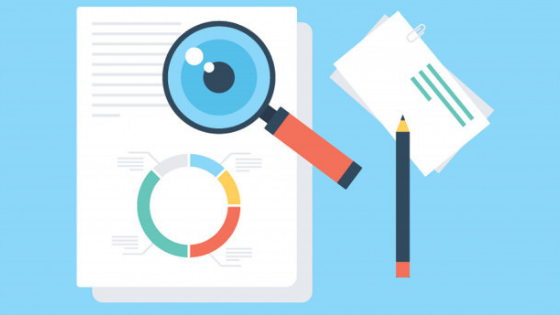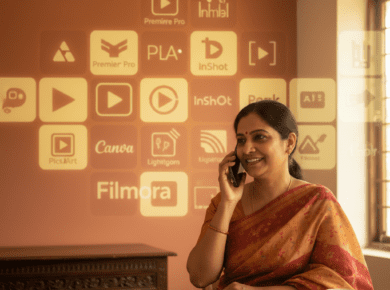Teaching is a dynamic profession and the teachers have to deal with different students. Dealing with students requires different teaching methodologies. Choosing the right teaching methodologies will bring instructions to life and increase the level of engagement in the classroom.

There are different types of teaching methodologies that are really helpful. Using teaching methods impacts the students as every student has a different understanding and different methods suit them. Let’s know different teaching methodologies that can be helpful for teachers.
What Are Different Teaching Methodologies?
Let us first understand what does teacher centered methods and student centered methods mean. In teacher centered approach students get direct instruction and content knowledge. In the student centeric approach, students get guidance and the focus is on their learning. Here the analysis is measured by projects, class involvement, team work etc. In both of these procedure, the authority figure is the teacher only that measures the growth of the student.
Teacher Centered Approaches
Teachers play a significant role in teacher centered learning process. Students are the passive information recipients, even if teachers are information providers or evaluators who check that students are giving the appropriate responses.
In teacher-centered learning, for instance, all questions that students generate, teachers directly address them without involvement of students, as teachers increasingly serve as the primary source of information. Teachers are in complete control of the planning of the class activities.
Direct Instruction Teaching Methodologies

This is one of the traditional teaching methodologies, where direct instruction is given to the students and followed properly. It majorly focuses on the textbooks and workbooks to complete according to the lesson plan. This is a fairly low-tech approach and in this the only source of information and knowledge is the teacher or the or the professor. Its instructions are basically passive in nature, thus leading to passive learning.
Flipped Classroom Teaching Methodologies
This method refers to a teaching style in which students view pre-recorded classes rather than listening to lectures and doing homework at home. While many teachers who use the flipped classroom model also use pre-produced videos from best online learning resources, they frequently produce their educational videos.

The biggest advantage of this type of teaching method is that the students can work at their own pace with so much ease. Students are free to develop independent learning skills. Teachers can also re-use the content that they created earlier. By this they will spend less time in preparation of video content and save a lot of their precious time.
Physical Learning Teaching Methodologies
Based on multiple intelligences, physical learning methods encourage students to do, manufacture, or create things. Instead of listening to lectures or seeing demonstrations, students engage in physical activities in a kinesthetic learning environment. Kinesthetic learning activities in the classroom include hands-on activities, drawing, role-playing, building, using theater, and participating in sports.
The method favors movement and creativity above technological skills. Therefore kinesthetic learning rarely relies on technology. This indicates that it is inexpensive, relatively easy to implement, and a welcome diversion from pupils’ regular screen time.
Student Centered Approaches
When using a student-centered teaching approach, preparation frequently starts with the student in mind rather than, say, school regulation or curricular artifact. This method helps in removing challenging aspects of academic life for the students if done correctly.
Student-centered teaching is instruction that prioritizes students and their needs above all. It centers the learning process around the students and their educational needs. Let us discuss some of the student centered teaching methods in detail.
Inquiry Based Learning Techniques
Inquiry-based learning focuses on the student’s participation in the learning process. This learning technique urges students to study the subject, ask questions, and exchange ideas rather than having the teacher dictate what they should know.

Small-group discussions and guidance learning are two methods of instruction in inquiry-based learning. Students learn by memorizing the information and knowledge. They can use inquiry, experience, and conversation to increase their knowledge in this way.
Game Based Learning
Learning activities incorporate game mechanics and principles, known as game-based learning. Learning activities help to increase student motivation and engagement. For example, points systems, badges, leaderboards, discussion boards, quizzes, and classroom response systems are all elements of game-based learning.
Another active learning method is game-based learning, in which games help to improve student learning. Here, learning is done by playing the game, which encourages analytical reasoning and problem-solving abilities. Digital or analog games can be used for game-based learning, and simulations may be included to give students hands-on learning opportunities.
Personalized Learning
The goal of personalized learning is to tailor instruction to the needs and interests of every student. They received a learning plan based on their prior knowledge and preferred learning styles. Students can learn in different ways and at different speeds. Therefore, each receives a “learning plan” based on their learning style, prior knowledge, abilities, and interests. It goes against the “one size fits all” philosophy prevalent in most schools.

Problem Based Learning
Problem-based learning is a type of learning that encourages students to take charge of their education. It helps them to build problem-solving abilities and acquire concepts rather than just memorizing information by using complicated, real-world challenges as the subject matter in the classroom.
There are numerous ways in which this might manifest itself. First, students might submit ideas and design their company plans as part of a problem-based learning initiative, for instance, to address a societal need. Then, in front of their peers and local leaders, students might work individually or in groups to create, design, and introduce their ground-breaking product.
Brainstorming Type Of Learning
Under student-centered teaching methods, brainstorming refers to a tactic or teaching tool in which the teacher engages the majority of pupils in the process by having them respond to or give their perspectives on a single issue. With this strategy, students can adapt to novel ideas.
Cooperative Learning
As part of the cooperative learning technique, students collaborate in small groups with the teacher’s assistance to complete a shared learning objective. As a result, students have the opportunity to learn in an environment that is more progressive for their future.

Teachers have the opportunity to deal with students’ basic ability and communication and soft skills, which are important for their success in life and the workplace.
Comparison Of Teacher Centered And Student Centered Teaching Methodologies
| Teacher Centered Approaches | Student Centered Approaches | |
| The nature of the classroom is strict and disciplined | In this type of approach, the classroom becomes a bit noisy and chaotic | |
| During this approach, the teacher is the primary speaker and students are the listeners | Promotes student and teacher communication as well as student-student communication is highly promoted | |
| Evaluation of the student is done by teachers or the instructor | Here, students are free to evaluate their own learning along with the instructor | |
| Students work alone in this type of approach | Students can work in pair or alone depending upon the requirements and their needs | |
| The topic for the classroom is mostly selected by the instructor | In this approach, students can also choose or suggest topics to be taught in the classroom |
Final Thoughts
Student centered classrooms share their focus equally between the teacher and the learner, further allowing joint efforts, communication, and self-expression of learners. On the other hand, a teacher-centered approach focuses on the teacher, and such a classroom does not encourage student expression and communication.
Based on their study, and experience, many teachers work to combine a mix of teacher-centered and student-centered methods, sometimes in the same classroom.
The Best Types Of Different Teaching Methodologies FAQs
A1. The main difference between the two approaches is that students’ attention is entirely focused on the instructor in a teacher-centered approach. In contrast, in a student-centered approach, both students and educators are equally focused.
A2. It majorly focuses on the facilitator function played by the teacher. Nobody disputes that students require a teacher’s help to develop their skills, despite criticism that the teacher-centered method promotes passive learning.
A3. Teaching methodologies are the broad principles, pedagogy, and organizational techniques applied during classroom education. There are different types of teaching methods, such as:
-Student centered
-Teaching centered methods
-Content based methods
-Interactive methods
A4. Teaching methods are the more general strategies utilized to assist students in achieving learning outcomes. Students benefit from teaching strategies in the following ways, such as by mastering the course material and becoming familiar with how to use it in specific situations.



